Using individuality and purpose for impactful careers by Vaishali Paliwal
Reviews
Unlocking Purpose and Individuality for Impactful Careers
Welcome! I'm Vaishali Pali, and three years ago, I found myself yearning for meaning and purpose in my professional life. This led me to transition from a 14-year career in the aerospace industry, to volunteering in sustainable farms at the base of the Himalayas, and eventually, to the mission-based nonprofit organization, Lata Institute. In this article, I share my journey, the key takeaways, and practical insights that could inspire you on your path to finding purpose and individuality in your career.
Realizing the Need for Change
Despite the dynamism of my previous work, I felt a loss of inner passion and fire. I knew that something needed to change. I believe taking a pause for self-awareness is fundamental to understanding yourself- your needs, wants, desires, aspirations, and goals. In the process of self-reflection, I noticed a misalignment between what I wanted from my job and what I was actually feeling.
Identifying Feelings and Needs
Understanding what you want your work to make you feel is instrumental in finding job satisfaction. For this, I found the "feelings inventory" from the Center for Nonviolent Communications to be a great tool. After identifying my intended feelings (empowered, secure, open, etc.), I realized that some of my career needs weren't being met.
Next, it was important to identify my workplace needs. The 'Needs Wheel' from the Center for Nonviolent Communications served as an effective tool to identify needs in different categories. For me, a sense of purpose, a sense of community, and an environment that nurtures self-expression were key needs in my working life.
Finding Activities that Meet Your Needs
Activities that meet our needs and bring joy can lead us towards fulfilling careers. For me, these activities included learning, studying, researching, and creating. I enjoyed working in environmental harmony with a community of creatives, artists, and social workers. This exercise helped me create a list of activities that I could incorporate into my career.
Mapping Out Aspirations and Strengths
Aspirations define our hopes, dreams, and ambitions for the future. They give us a vision to follow. When mapping out aspirations, it's vital to consider our skills, interests, and what we can get paid for. Identifying my strengths helped me understand what I'm naturally good at and what energizes and motivates me.
The Beautiful Bird Called Purpose
By identifying our needs, wants, aspirations, strengths, and moments of growth, we get closer to understanding our purpose. Our purpose becomes the reason why we do the things we do in our life. For me, my purpose is to work for the protection, prosperity, and harmony of our planet and all lives by using my strengths in communication, leadership, project execution, and strategic thinking.
Translating Purpose into Career Decision Making
Understanding our purpose can guide us towards the right professional opportunities. Having clarity about my purpose helped me identify the causes and organisations I wanted to work for. Eventually, I found Lata Institute, where my aspirations and values naturally aligned with the organisation's mission, vision, and goals.
Individualization as a Strength
Appreciating and acknowledging our unique talents, skills, and strengths is crucial. In a world that often tries to feed us a generalised vision, it is essential to take pride in our unique experiences and stories. Remain fearless throughout the process, trust the universe, the community, and the process.
mplementing Positive Change
Taking the steps towards meaningful change in our careers requires dedication, focus, and commitment on building the new. It takes effort, but making the transition to a career that aligns with your purpose, strengths, and aspirations, and ultimately makes you happier, is absolutely worth it.
Conclusion
Thank you for joining me on this journey of self-discovery. Hopefully, my insights and experiences can help inspire you to find purpose and individuality in your own careers. Remember, our unique strengths and perspectives are the tools we can use to solve some of the world's biggest challenges.
Video Transcription
Welcome to my session using purpose and individuality for impactful careers. My name is Vaishali Pali. And about three years back, I was at a point in my professional life that I was not getting a sense of meaning and purpose that I strive for.And so I quit my career of 14 years in aerospace industry, took a break period and traveled, lived and volunteered for sustainable farms at the foothills of Himalayas in India and then return back to us to join a mission based nonprofit organization named Lata Institute that works to support and accelerate innovations and start ups that are working on solutions for a sustainable planet.
In this talk. Today, I intend to share with you this journey, this transition that I went through and some key takeaways and practical insights that I discovered along the way, which might bring some food for thought for you and maybe even motivate you to go after your dreams.
So again, welcome and thank you for joining me. So a little bit about me, I'm Vishal. I have a master's degree in Material Science and Engineering from University of North Texas. I have been a program management professional for 17 years now, 1st 14 years in aerospace industry, working for airline interiors, companies like Ricardo Zodiac, aerospace gale, aerospace, working for big clients like Airbus Boeing, most major airlines across the globe. Uh and then recent three years with LA A Institute where I currently work as director of program operations and I manage a very talented program management team and LT A programs that are designed to help support accelerate foster new science and technology that is working to sustainably feed fuel and heal the world.
I'm also a published poet and artist. I've had two of my poetry books published and I'm engaged in different kind of creative work all the time. I'm going through a certified yoga teacher training this year and I aspire to be a farmer at some point in my life, working out of a rural village somewhere out in the mountains. So as dynamic and as exciting, my previous work was I felt like I'm losing the sense of inner fire and passion. I knew that I wanted to do something else, but I didn't know what that something else looked like. And I couldn't have come out of that state of confusion and non clarity if I hadn't taken the pause of self-awareness of contemplation and self reflection, if I hadn't taken out time to understand myself, my needs, my wants, my desires, aspirations, goals. And so before we get into this journey of self discovery, this is the very first thing that I would like to share with all of you is this underlying principle which I have used is to practice the pause of self-awareness and take out time to truly understand and know ourselves.
So as I started reflecting more and more, I observed this misalignment in my previous work and the misalignment was between what I wanted my work to make me feel and what I was actually feeling. So then it was time to answer this very important question that what do I want my work to make me feel? Uh And for that, I recommend this great tool from Center for nonviolent Communications. It's called the feelings inventory. You know, sometimes we don't find the right language and the right vocabulary to label. What is it that we're going through? And these kind of tools definitely really help. So with that, I answered the question that I need my work to make me feel empowered, secure, open, happy, fascinated, passionate content, creative, valuable and stimulated. And once I identified these feelings and if my work was not making me feel that way, then what does that mean?
That means that some of my needs were not getting met. And so then it was time to identify that in my work, what are my needs? And for that, I would recommend aga again, another great tool from center uh from for non violent communications. It's called the needs wheel where needs are identified in all these different categories. Please do check out when you find time because again, it kind of gives a structure to specifically ident if I, what is it that our needs are. And for me, in my work, my needs are to have a purpose, to have a community, have a sense of freedom, being able to evolve, have the peace of mind, feel secured, feel accepted, working in authentic, honest environment, being able to self express and working in a place that appreciates flow and space.
So once I identified these needs and and if some of some of these needs were not getting met at my workplace, then it was time to act on those unfulfilled needs and to figure out that what is it that I need to do to act on those unfulfilled needs. I looked to my past, I thought about my moments from the past, the events from the past where my needs were getting met and I started identifying what are the activities I I really look forward to doing. What is it that I I would do for free? And for me, it was learning, studying, researching, observing, exchanging ideas, creating teaching and activities that have brought me joy is to work for the environment, live in harmony with the nature and core, with a community with like minded people, with my tribe of creatives, artists, environmentalists, social workers and their activities that made me feel good is to be a contributing and valuable member for projects that are solving social issues.
So what this exercise did this ex exercise of identifying that? What is it that I need to do to meet my needs? What this exercise gave me is a list of activities, list of things specifically that I really enjoy doing and, and ones that I want to do in my work and this piece will make uh a little bit more sense when we connect the dots later. So we're gonna circle back with it back onto this part. The other thing to think, think about what is it that I aspire to be in my workplace aspirations, our hopes, dreams, ambitions that we want to achieve in our professional lives in the years to come. They are our vision for the future. For me, it was important to identify uh what is it that I aspire to be? Because it gave me this vision to go after and a little bit of more clarity on what is it that I want to do. And so to map the aspiration, there are three components to think about. First of all, what are my skills and strengths? We are gonna deep dive into this in the, in the next slide. And what are my interests and passions, something that I really enjoy doing, which is something we covered in the previous slide. And the last point, what can I get paid for for this last question?
You know, typically we approach this question thinking about what is it that I have always been paid for? Uh But I would recommend to uh be a little bit more open minded and to approach this uh question from different angles, maybe there are some other focus areas which you have not thought about, but that you could get paid for. For example, for me, when I was taking the break, period, I tried creative writing and I actually got paid for it as well. This is something to keep in mind coming to a very crucial point, identifying what my strengths are the way I have done. This is by thinking about what is it that I'm naturally good at. And for me, it is execution, project management, getting things done, leading, managing executing projects, also something that, that energizes and motivates me. And this was a aha moment really recently. Uh I have been admitted to the fellowship program of moving words and in the personal strength assessment, the instructors and the teachers brought up this very good and interesting point that strength is not something uh that we not just something that we are good at but also something and even more so something that energies stimulates and motivates us.
So I thought about that category. And for me, I identified that there are some other strengths I have like an intellectual ideation, futuristic thinking, strategy thinking learning. And those are some of the things which I I'm also exploring more and experimenting with recently, something that I can use in different jobs, whether it's social impact uh space, whether it's any other industrial sector, my project management, my strategic thinking skills, I can use it pretty much anywhere, something that I'm very effective at something I find enjoyable to do.
Again and again, I recommend to try some of those personal strength assessment tests online uh by the Clifton Strengths Gallup and so forth. And then to simply ask others another question to answer. And to think about what are those moments when I have felt that I am growing and to answer this question, some factors to consider. This is my favorite state. This is where I'm feeling confident. I'm successful. I'm productive. I have the peace of mind. I'm happy. This is when I'm meeting my goals and vision. This is when I'm using my strengths for bigger impact. This is when I'm learning something new and this is when I'm being creative and innovative. So I thought about all these things and for me, the moments where I have felt that I'm growing is when I'm learning something new. And I'm applying that knowledge to elevate the understanding of myself and the society so we can do problem solving in a very intelligent and efficient manner. So now that we have looked at all these different pieces, it's time to meet this beautiful bird called purpose. And before we start talking about purpose, a lovely quote from rumi be a lamp or a lifeboat or a ladder helps someone's soul heal, walk out of your house like a shepherd. And so let's look at all the different things and pieces we spoke about.
So we looked at identifying our needs, identifying our wants, our aspirations, our strengths, our moments of growth and our feelings and what that's gonna do is it's going to give us, what is it that we want to do? How is it that we are gonna do this? And who is it that we're gonna do this for? And what that's gonna do is it's gonna give us our purpose and our purpose becomes our why? Why is it that we do the things we do in our life. Purpose for me is something on the wall that I wake up to every morning and it makes me jump out of my bed and go after the things I want to achieve in my life. It is my guiding light. It is my motivator, my driver, my, the source of my energy. And so as I went through this exercise and of course, back then, 34 years back, I didn't have this structure. This is something I've realized over the years. But back then I worked with these different pieces and it helped me towards getting a better understanding on what my purpose is, which is for me now that I have little better clarity it for, to work for protection prosperity and harmony of our planet and all lives by using my strengths in communications, leadership, project execution, strategic thinking and by leading designing, managing and executing projects for sustainability development goals.
So after I got this a bit of a better clarity in identifying my purpose, I used it for another thing. I used it for identifying what is the kind of organization I want to work for. What are the kind of causes I want to work for? Where is it that I can best apply my strength? What kind of teams I want to work with big or small they working styles? And what that gave me is that I could look for and identify opportunities where I could make the most impact. And so it helped me with that search and with that search, finally, I was fortunate enough to come across data institute where my needs wants aspirations, strength, my growth, all of that aligned with very naturally aligned with Lotta's mission, vision and goals. And it continues to be a great fit where I continue to make a very positive impact for our world and our planet. So to summarize this slide, we can use this activity to get better understanding of our purpose, which can make it clearer that what are the specific opportunities we want to go after and where we can make the most of the impact and to summarize my journey so far. So I have used my confusion, my restlessness, my frustration as my opportunity. It really is an indication of that something is not aligning with who I am, my soul myself.
And so to use this opportunity to, to change things for the better, using my feelings, my emotions, my thoughts, my needs as my compass. If I'm not feeling good, if my all the time and if my needs are not getting satisfied, then it means that something is off and it's, it's time to make some, make some sort of shift using my purpose as my driver, my motivator, my underlying theme that why I do the things I do, how I do it, who do I do it for and individualization as my palette, I, I really wanna talk about this on this slide.
So to identify, know, appreciate, acknowledge my unique talents, skills and strengths and for us to really collectively realize that this is really how we are going to solve the things based on what we are going through in the world today is for these very unique and diverse beings to come together with their unique strengths and perspectives and ideas for problem solving some of the biggest challenges that the world and the planet is facing.
And you know, this picture that I have on the slide here, there is this whole story behind it which I don't think we'll be able to get to. But this is from when I was volunteering for a nonprofit organization in Uttarakhand. India. Uh This organization works to increase livelihoods of local artisans and villagers by working with their artwork, local resources, bio jewelry, things like that. And the reason why I wanted to share this picture is because this is one very honest and authentic moment from my journey, which can look and feel like very different from the others. And that is completely ok. It is, it, it's time that we endorse and celebrate our very different and unique stories and experiences and learn from it each other versus what mainstream tries to feed us is this very generalized and algorithm driven vision and image to go after. So it's important to not get caught up in that trap and to really enjoy and take pride in and celebrate our very own unique journeys, experiences stories. And the other thing, of course, staying fearless through the process, I couldn't have gone through that decision three years back of quitting my very stable and very successful career in aerospace industry. If I was encouraged through it, trusting the universe, trusting the community, trusting the process.
Uh you know, if you're trying to do something good people will support you. So having, having the faith and then having the self belief that I'm capable, I'm confident, no matter how confusing or difficult or messy the path is, I will figure this out and to use the pause of self-awareness as my tools and last but not the least commitment and focus on building the new.
So we can go through this entire exercise of identifying our purpose, our meaning and getting better clarity, understanding ourselves. But if there is no, if we don't have that 100% rather 200% effort and dedication and focus on creating the new, then that transition to the next level and that complete transformation that we are hoping for will not happen will be difficult. So an obvious point there. Uh But I wanted to share that. And then lastly, I will leave you with this lovely poem by Kamla Das. She was an Indian woman poet. Um I spoke a lot about individualization today on how we can use that as a personal strength, as a personal power, a beautiful thing, a positive thing using our unique strengths and dreams to heal the world. I'm Indian, very brown born in Malabar. I speak three languages right into dream in one. Don't write in English. They said English is not your mother tongue. Why not leave me alone, critics, friends, visiting cousins every one of you. Why not let me speak in any language? I like the language I speak becomes mine. Its distortions, its queerness is all mine and mine alone. It is half English, half Indian funny perhaps, but it is honest. It is as human as I am human. Don't you see, thank you everyone for joining.
And I have le left my contact information and my linkedin link uh in the profile and I can stay here for a couple of more minutes if you have any comments or questions, I can address those. Thank you for joining. Thank you, Rebecca. Thank you very much. I appreciate it. Thanks for joining and taking our time to leave those comments because I know everyone is quite busy. Uh And yeah, I would love to connect with all of you. I have left my linkedin profile and uh the ones who have left, who have left yours. I'll definitely reach out to you. Thank you, Melissa. Thank you. Thank you. Thank you, Rena. All right, we are on time. Thank you, everyone.

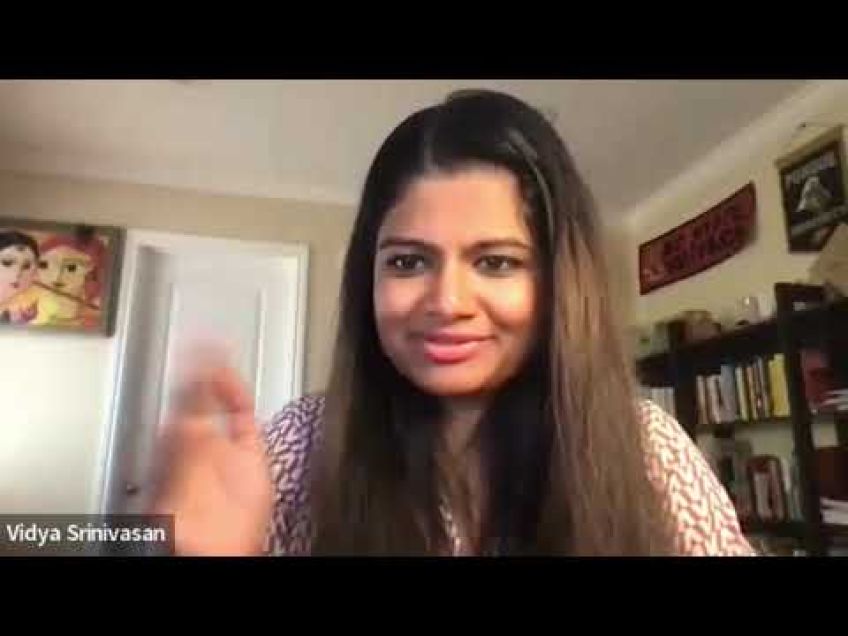
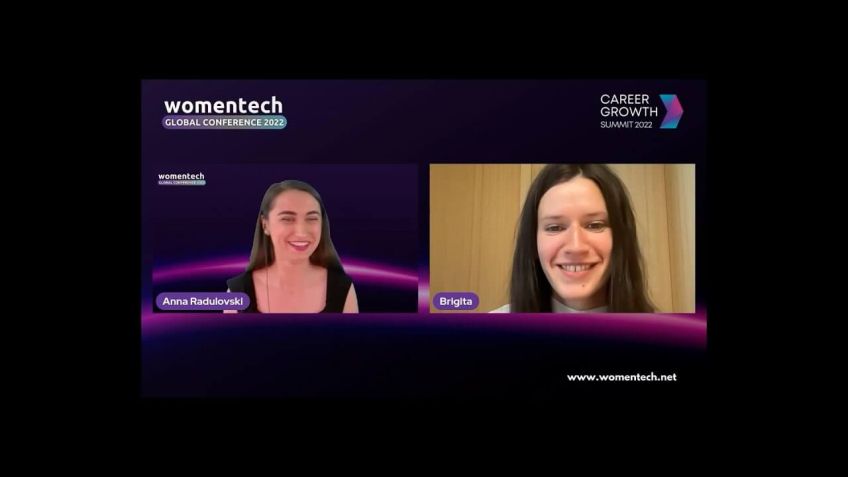
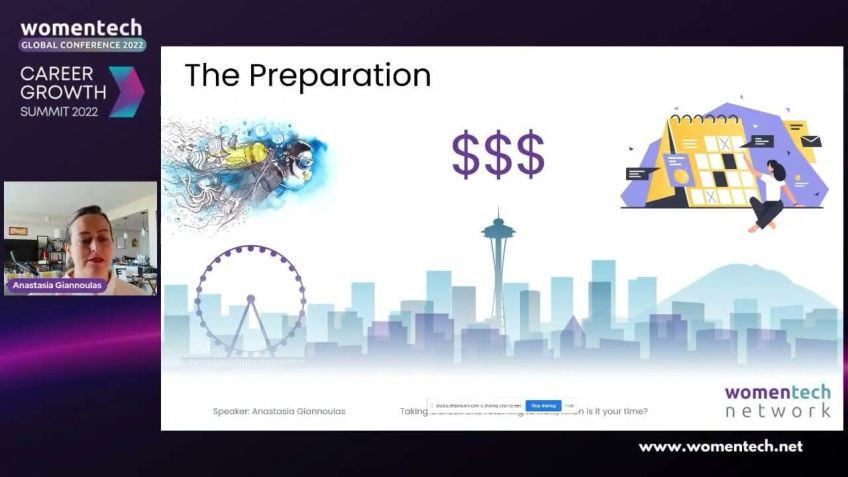
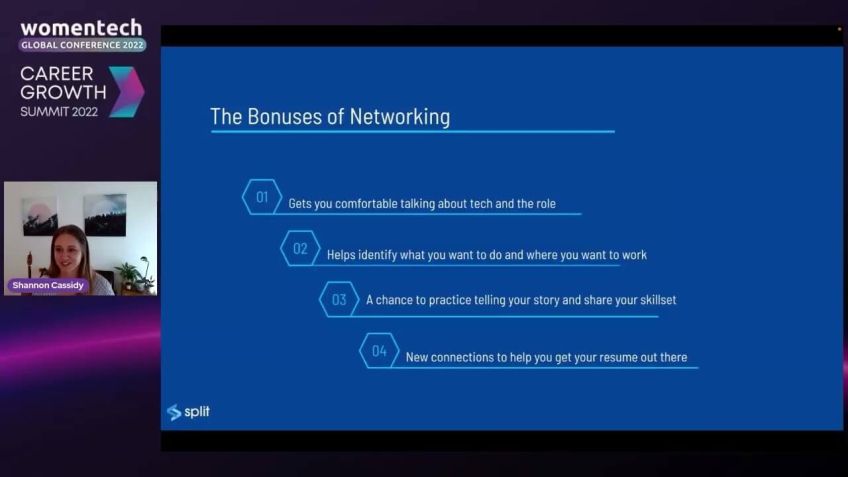
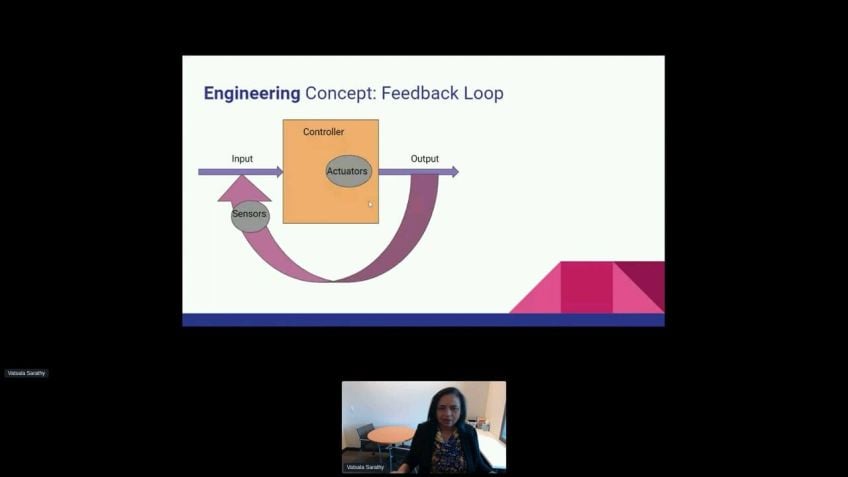
No comments so far – be the first to share your thoughts!